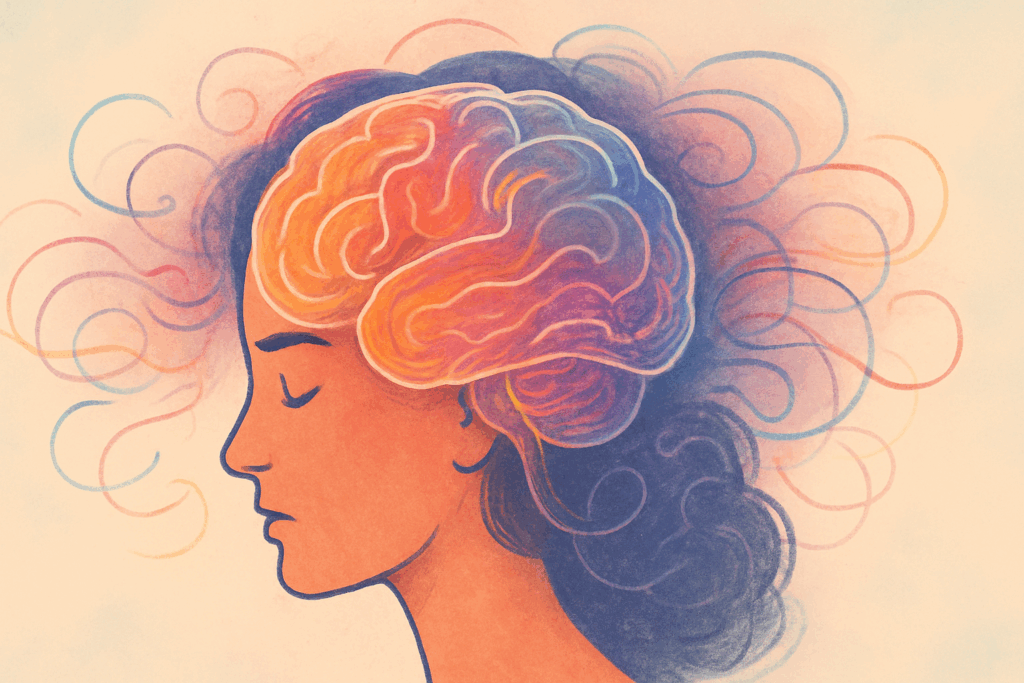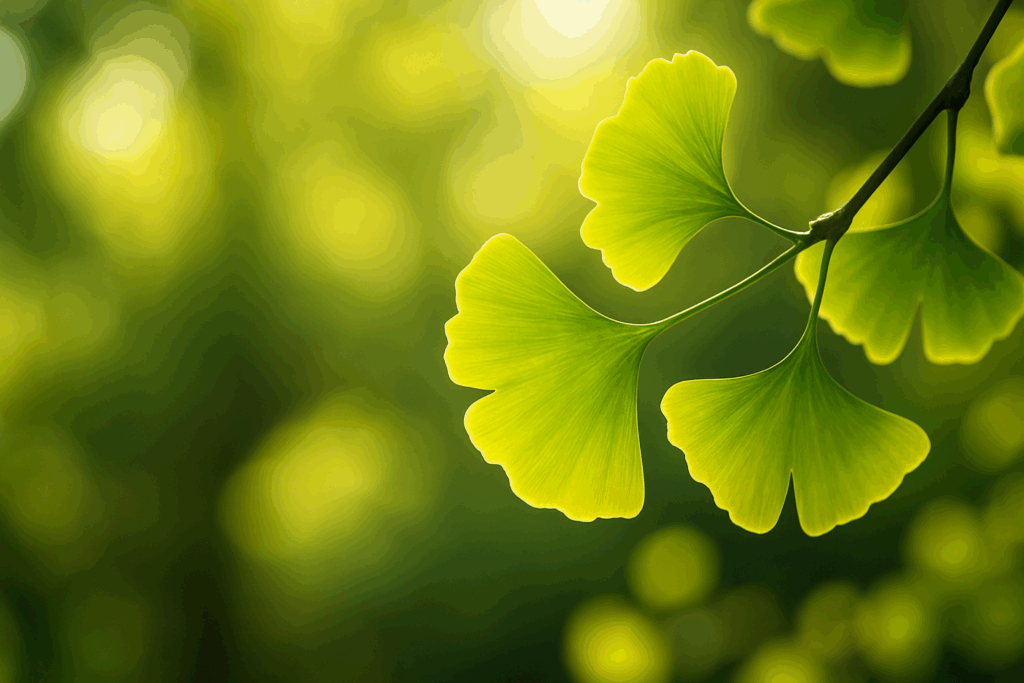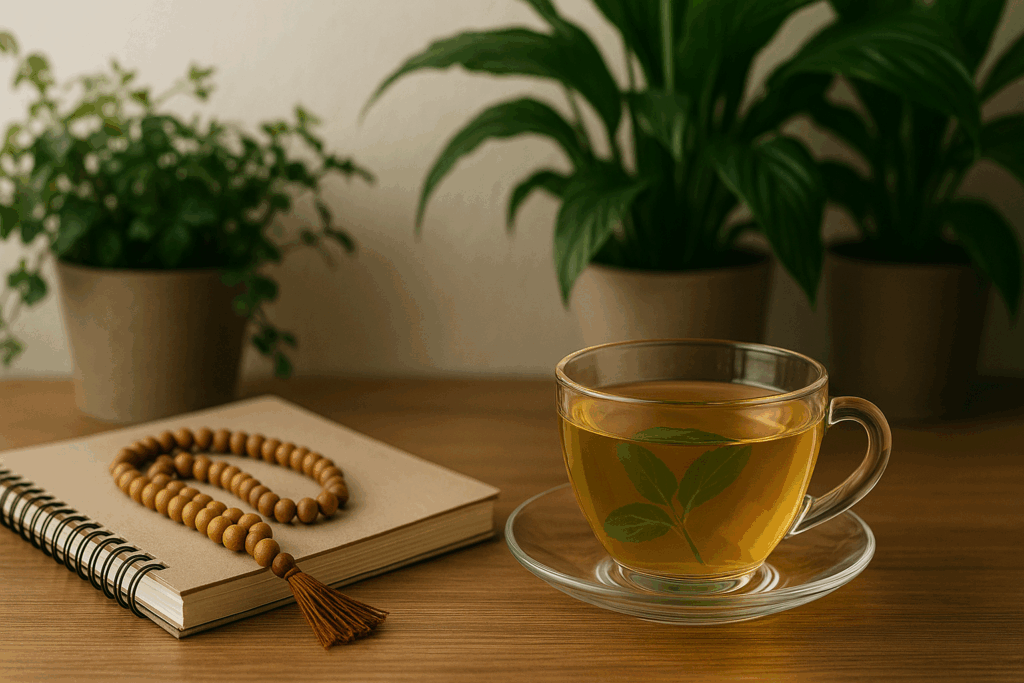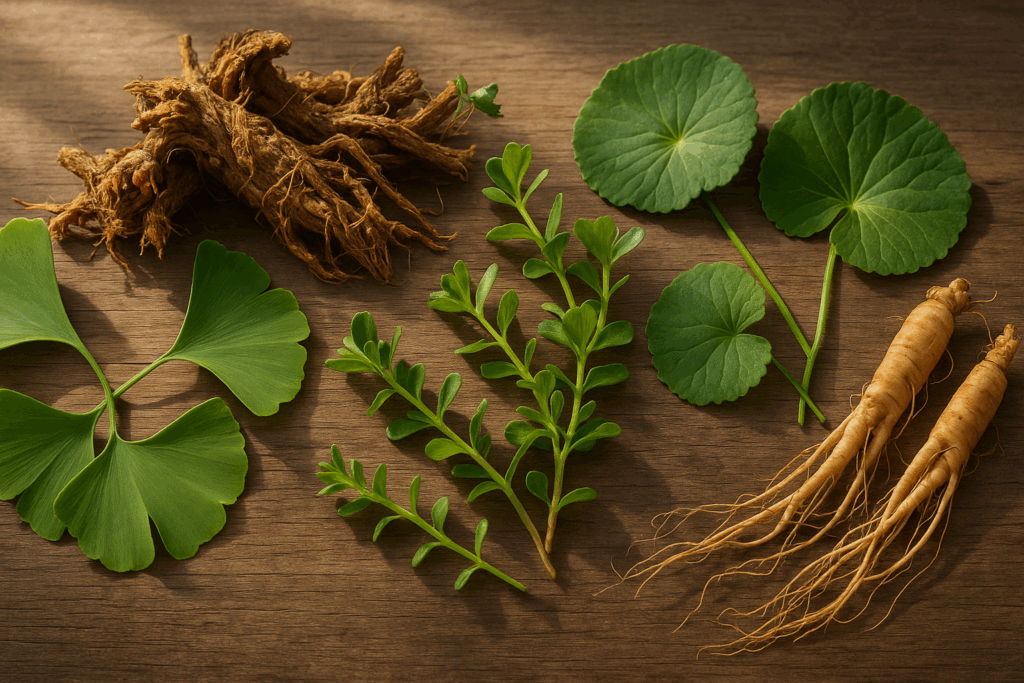Understanding ADHD in Women: Unique Challenges and Considerations
Attention Deficit Hyperactivity Disorder (ADHD) is often stereotyped as a condition primarily affecting young boys. However, growing research highlights that ADHD manifests differently in women, leading to frequent underdiagnosis or misdiagnosis. In women, ADHD symptoms often include inattentiveness, internalized anxiety, and emotional dysregulation rather than hyperactivity, making it less conspicuous and therefore overlooked. Hormonal fluctuations across the menstrual cycle, pregnancy, and menopause further complicate the presentation of ADHD symptoms, impacting cognitive processing activities and emotional regulation.
You may also like: Best Herb for ADHD Support: How Natural Remedies and Herbs for ADHD Women May Help Boost Focus and Calm
Recognizing these unique patterns is crucial for developing effective cognitive stimulation activities and tailored treatment approaches. While traditional medications like stimulants can be highly effective, many women seek complementary therapies to minimize side effects or enhance overall wellness. Herbs, particularly those known for their neuroprotective, adaptogenic, and cognitive-enhancing properties, have emerged as promising natural allies. Cognitive activities for adults with ADHD often integrate both lifestyle modifications and botanical support to promote focus, emotional stability, and cognitive resilience.

Why Herbs Are Gaining Attention for ADHD Management
Interest in herbal remedies for ADHD stems from an increasing emphasis on holistic well-being. Modern cognitive stimulation therapy activities recognize that optimal brain function relies not only on neurotransmitter levels but also on stress management, hormonal balance, and lifestyle integration. Herbs offer multifaceted benefits that target these interconnected areas without necessarily invoking the side effects associated with conventional medications.
Research into cognitive activities examples, such as mindfulness, meditation, and herbal supplementation, shows that certain herbs may support dopamine and norepinephrine regulation, essential neurotransmitters involved in attention and executive function. Furthermore, herbs can enhance cognitive processing activities by reducing oxidative stress, inflammation, and hormonal imbalances, all of which have been linked to ADHD symptomatology in women. The growing body of evidence lends credibility to these approaches, aligning with the principles of cognitive activities for adults seeking alternative or adjunctive treatments.
Ginkgo Biloba: The Brain’s Natural Booster
Ginkgo Biloba, often lauded for its cognitive-enhancing properties, is a time-tested herb that may benefit women with ADHD. Its primary mechanism involves improving cerebral blood flow, thus enhancing the delivery of oxygen and nutrients critical for optimal cognitive processing activities. Ginkgo’s potent antioxidant properties also help neutralize free radicals that can impair brain function. Studies have shown that Ginkgo supplementation can enhance attention span, executive function, and working memory, key cognitive activities for adults managing ADHD.
Additionally, Ginkgo’s potential role in modulating neurotransmitter systems aligns with the neurobiological underpinnings of ADHD. As part of cognitive stimulation activities, incorporating Ginkgo may help bridge the gap between pharmacological and lifestyle interventions. However, it is important for women, particularly those on blood thinners or approaching hormonal transitions like menopause, to consult a healthcare provider before initiating Ginkgo therapy.

Bacopa Monnieri: The Cognitive Stimulant Without the Jitters
Bacopa Monnieri, also known as Brahmi, is an Ayurvedic herb traditionally used to enhance cognitive performance and reduce anxiety. Unlike caffeine or other stimulants, Bacopa provides cognitive stimulation activities that support memory consolidation, learning capacity, and executive function without increasing anxiety or heart rate. This characteristic is especially important for women whose ADHD symptoms intertwine with heightened emotional sensitivity.
Bacopa works by modulating serotonin and dopamine levels, two neurotransmitters critical for mood regulation and focus. It also reduces cortisol levels, promoting a calmer yet attentive mental state, thus improving the efficacy of cognitive activities examples such as mindfulness practices and task-focused activities. Daily supplementation with Bacopa may, therefore, act as a gentle yet effective tool in cognitive stimulation therapy activities tailored for women with ADHD.
Rhodiola Rosea: The Adaptogen for Emotional and Cognitive Resilience
Rhodiola Rosea, a renowned adaptogenic herb, offers remarkable benefits for emotional resilience and cognitive stamina. Adaptogens are natural substances that help the body resist physical, chemical, and biological stressors, making Rhodiola an excellent adjunct to cognitive stimulation activities for adults with ADHD.
By enhancing mitochondrial energy production and regulating stress-response systems, Rhodiola fosters improved cognitive processing activities such as decision-making, task-switching, and sustained attention. Women with ADHD who experience significant emotional fluctuations may find Rhodiola particularly beneficial, as it stabilizes mood without the sedative effects common in some other treatments. Incorporating Rhodiola into a comprehensive ADHD management plan that includes cognitive stimulation therapy activities can yield significant improvements in both day-to-day functioning and long-term mental health.

Gotu Kola: Strengthening Neural Pathways Naturally
Gotu Kola, another traditional herb from Ayurvedic and Chinese medicine, is valued for its ability to promote neurogenesis and enhance cognitive activities for adults. Known as “the herb of longevity,” Gotu Kola improves blood circulation, supports connective tissue repair, and stimulates brain-derived neurotrophic factor (BDNF), a protein that encourages the growth of new neurons and synapses.
For women with ADHD, Gotu Kola offers a dual benefit: it improves cognitive processing activities and supports emotional balance. The herb’s anxiolytic properties help temper the emotional impulsivity and anxiety often accompanying ADHD. By fostering both structural brain health and emotional regulation, Gotu Kola becomes an invaluable component of comprehensive cognitive stimulation therapy activities, enhancing not just focus but also overall neurological resilience.

Panax Ginseng: Energizing Mental and Physical Performance
Panax Ginseng, often referred to as “true ginseng,” has long been esteemed for its ability to enhance physical endurance, mental clarity, and resilience to stress. Ginseng’s active compounds, known as ginsenosides, modulate neurotransmitter systems, optimize cortisol rhythms, and improve synaptic plasticity, all of which are vital for robust cognitive activities.
For women navigating ADHD symptoms, Panax Ginseng offers a natural way to amplify energy without exacerbating restlessness or anxiety. Its balancing effect on the hypothalamic-pituitary-adrenal (HPA) axis helps sustain attention and executive function during cognitive stimulation activities. Given its broad spectrum of benefits, Panax Ginseng can be integrated seamlessly into cognitive processing activities designed for adults managing ADHD and related cognitive challenges.
Integrating Herbal Support into Holistic ADHD Management
While herbal remedies can offer substantial cognitive support, they are most effective when integrated into a broader, holistic approach to ADHD management. Cognitive stimulation therapy activities, dietary modifications, structured cognitive activities examples, and mindfulness practices all synergize to maximize brain health.
Choosing the best herb for ADHD requires personalized consideration, as individual neurobiology, hormonal status, and lifestyle factors play crucial roles. Consulting a healthcare practitioner with experience in integrative or functional medicine ensures that herbal interventions are safe, appropriate, and optimally tailored to individual needs. Cognitive activities for adults that incorporate strategic herbal support can significantly enhance outcomes, promoting sustained attention, emotional balance, and cognitive resilience over time.
Practical Tips for Choosing and Using Herbs Safely
Selecting high-quality herbal supplements is critical to achieving therapeutic benefits while minimizing risks. Look for products that are standardized to active compounds, sourced from reputable suppliers, and free from contaminants like heavy metals or pesticides. Organic certification and third-party testing add additional layers of trustworthiness, aligning with the EEAT principles of Experience, Expertise, Authoritativeness, and Trustworthiness.
Herbs can be taken in various forms, including capsules, tinctures, teas, and powders. Working herbs into daily routines can enhance adherence and maximize cognitive stimulation activities by aligning botanical support with structured schedules and practices. It’s also wise to start with lower doses and gradually increase under professional supervision, particularly when layering herbs with other cognitive stimulation therapy activities or pharmaceutical treatments.
Monitoring for subtle shifts in mood, focus, sleep quality, and emotional regulation helps track the effectiveness of herbal interventions. Women who are pregnant, nursing, or taking medications should exercise additional caution and seek medical advice before introducing any new herb. Overall, integrating herbs thoughtfully enhances cognitive processing activities and offers a sustainable, natural pathway to managing ADHD.
Exploring Cognitive Activities for Adults with ADHD
Cognitive activities for adults play a pivotal role in ADHD management, complementing herbal support by directly targeting executive function, attention, and emotional regulation. These activities can include brain-training exercises, mindfulness practices, memory games, and structured learning routines designed to enhance neuroplasticity.
Incorporating herbs like Ginkgo Biloba or Bacopa Monnieri while engaging in cognitive activities examples such as meditation, journaling, or learning new languages can deepen the benefits, fostering both structural and functional brain improvements. Combining cognitive stimulation activities with botanicals creates a powerful synergy, accelerating gains in focus, working memory, and task management.
Cognitive stimulation therapy activities often include individualized plans that incorporate behavioral strategies, mental exercises, and supportive therapies. These interventions are especially effective when they emphasize emotional self-regulation, organizational skills, and resilience-building practices, all of which are critically important for women managing ADHD amidst the complex demands of adult life.

FAQ: Top Herbs for ADHD in Women and Cognitive Support
1. Can herbs for ADHD in women enhance long-term cognitive resilience?
Absolutely, herbal support can play a significant role in building long-term cognitive resilience, especially when combined with structured cognitive activities for adults. Herbs like Bacopa Monnieri and Gotu Kola not only offer immediate support for focus but also contribute to neural plasticity over time. When integrated with consistent cognitive activities, such as brain training or creative pursuits, these herbs can enhance neural network efficiency and adaptability. Long-term improvements are more likely when herbs are paired with cognitive stimulation activities that challenge memory, executive function, and problem-solving skills. Thus, a dual approach of herbal support and regular cognitive stimulation therapy activities helps strengthen mental endurance over the years.
2. How do cognitive activities examples complement herbal treatments for ADHD?
Cognitive activities examples like journaling, memory games, or mindfulness exercises synergize beautifully with herbal treatments. While herbs such as Rhodiola Rosea help manage stress and stabilize neurotransmitters, cognitive activities for adults engage different brain regions, creating new synaptic connections. This dual engagement fosters deeper learning and cognitive adaptation, a principle at the heart of effective cognitive stimulation therapy activities. Combining the two creates a self-reinforcing cycle where herbs support optimal brain chemistry while activities refine and strengthen cognitive processing activities. This holistic blend is especially empowering for women managing ADHD in demanding personal and professional roles.
3. Are cognitive stimulation activities necessary when using herbs for ADHD?
Yes, relying solely on herbs without actively engaging in cognitive stimulation activities limits potential improvements. Cognitive stimulation therapy activities actively challenge and expand brain function, enhancing working memory, sustained attention, and emotional regulation—key challenges for many women with ADHD. Herbs provide the biochemical support, but activities like structured reading, puzzles, and mindfulness tasks facilitate skill-building at the behavioral level. Ideally, women should view cognitive activities for adults as a cornerstone of their holistic ADHD management plan, with herbs serving as a supportive, not sole, therapy. Over time, this comprehensive approach can foster profound improvements in everyday cognitive processing activities.
4. What are innovative ways to integrate herbs into daily cognitive activities?
Innovative strategies include pairing herbal teas like Gotu Kola with morning meditation or using adaptogenic tinctures like Rhodiola before engaging in focused work sessions. Women may also incorporate Panax Ginseng supplements into pre-workout routines that involve cognitive activities for adults such as dual-task exercises (physical plus mental tasks). Another creative idea is to create “cognitive activity rituals”—small, daily practices that combine herbs and cognitive stimulation therapy activities, such as sipping Ginkgo Biloba tea while practicing visualization techniques. These combinations enhance the effectiveness of both interventions, making daily cognitive processing activities more robust and rewarding.
5. Can cognitive processing activities enhance the bioavailability of herbs?
While cognitive processing activities themselves do not directly alter bioavailability at the biochemical level, they can enhance the functional impact of herbs. When the brain is actively engaged through cognitive activities examples like problem-solving or language learning, the physiological effects of herbs are often felt more prominently. Increased blood flow to engaged brain areas may help distribute the herbal compounds more efficiently where needed. Additionally, cognitive stimulation activities can improve emotional regulation and stress management, creating a more favorable internal environment for herbs to work effectively. Thus, while the mechanism isn’t strictly pharmacological, the synergistic outcomes are highly meaningful.
6. Are there specific cognitive activities for adults that align better with herbal support?
Certain cognitive activities for adults align exceptionally well with herbal support, particularly those emphasizing executive function, mindfulness, and emotional regulation. Activities like guided meditation, strategic board games, structured writing, and dual n-back memory training are excellent choices. These cognitive stimulation therapy activities target brain areas where herbs such as Bacopa Monnieri and Rhodiola Rosea have shown to exert positive effects. Additionally, creative activities such as painting, music composition, or crafting further enhance the brain’s adaptive capacity when paired with herbal interventions. A tailored approach ensures that cognitive stimulation activities maximize both neurochemical and behavioral gains.
7. How do cognitive stimulation therapy activities address emotional challenges in ADHD?
Cognitive stimulation therapy activities are vital for managing the emotional dimensions of ADHD, particularly in women who often experience internalized anxiety and emotional dysregulation. Activities that focus on mindfulness, emotional awareness, and strategic coping skills directly enhance prefrontal cortex functioning, where emotional regulation is largely governed. Herbs like Rhodiola and Gotu Kola complement these activities by stabilizing mood and reducing cortisol levels, creating a conducive environment for emotional growth. Regularly practicing emotional-focused cognitive activities examples, such as guided self-reflection or cognitive restructuring exercises, fosters resilience and long-term emotional balance. This holistic strategy addresses the often overlooked, yet profoundly impactful, emotional aspects of ADHD.
8. Can cognitive activities for adults help in adjusting herbal dosages over time?
Indeed, tracking performance during cognitive activities for adults can provide valuable feedback for adjusting herbal dosages. Women engaging in consistent cognitive stimulation activities may notice shifts in focus, memory, or emotional regulation that signal either optimal herbal effectiveness or a need for adjustment. For example, if cognitive processing activities such as complex problem-solving suddenly feel significantly easier or harder, it might be worth consulting a healthcare provider to recalibrate the herbal regimen. Regular self-monitoring through structured cognitive stimulation therapy activities allows for dynamic, individualized management, ensuring that the herbal support evolves with changing cognitive needs.
9. What future developments are expected in combining herbs and cognitive stimulation activities?
The future of integrating herbs with cognitive stimulation activities looks extremely promising, particularly as personalized medicine advances. Emerging trends include combining cognitive activities examples with wearable tech that monitors brain activity, allowing real-time adjustments to herbal supplementation. Researchers are also exploring smart nootropic blends tailored for specific cognitive stimulation therapy activities like focus-intensive work, emotional resilience training, or creative problem-solving. Additionally, digital platforms are likely to offer integrated programs where cognitive activities for adults are directly paired with individualized botanical protocols, maximizing outcomes. This dynamic intersection of neuroscience, herbal medicine, and technology will redefine holistic ADHD management in the coming years.
10. How can women personalize their cognitive stimulation therapy activities for better ADHD management?
Personalization begins with identifying individual cognitive strengths, weaknesses, and lifestyle demands. Women should first assess whether their primary challenges lie in attention, executive function, emotional regulation, or memory and select cognitive stimulation activities accordingly. Herbs such as Bacopa Monnieri for memory or Rhodiola for stress resilience can then be paired strategically with cognitive activities examples like strategic planning games or emotional journaling. Regularly tracking responses to cognitive processing activities and herbal interventions provides the feedback needed to fine-tune strategies over time. Ultimately, personalization transforms cognitive stimulation therapy activities into a highly effective, empowering tool for thriving with ADHD.

Conclusion: Harnessing the Power of Herbs and Cognitive Activities for Holistic ADHD Support
Navigating ADHD as a woman demands a nuanced, holistic approach that honors the interplay between neurobiology, hormones, emotional well-being, and lifestyle factors. The exploration of top herbs for ADHD, including Ginkgo Biloba, Bacopa Monnieri, Rhodiola Rosea, Gotu Kola, and Panax Ginseng, highlights the remarkable potential of botanical allies to enhance cognitive activities for adults and support overall brain health.
When integrated with structured cognitive stimulation therapy activities and supported by high-quality cognitive activities examples, these herbs offer a natural, sustainable path to greater focus, emotional regulation, and cognitive resilience. With mindful selection, professional guidance, and personalized integration, herbal remedies can amplify the benefits of cognitive processing activities, helping women thrive in both their personal and professional lives.
Ultimately, embracing a holistic model that combines the best herb for ADHD support with evidence-based cognitive activities opens the door to profound and lasting transformation. In doing so, women not only manage their ADHD symptoms more effectively but also cultivate cognitive vitality, emotional balance, and a deeper sense of empowerment in their daily lives.


